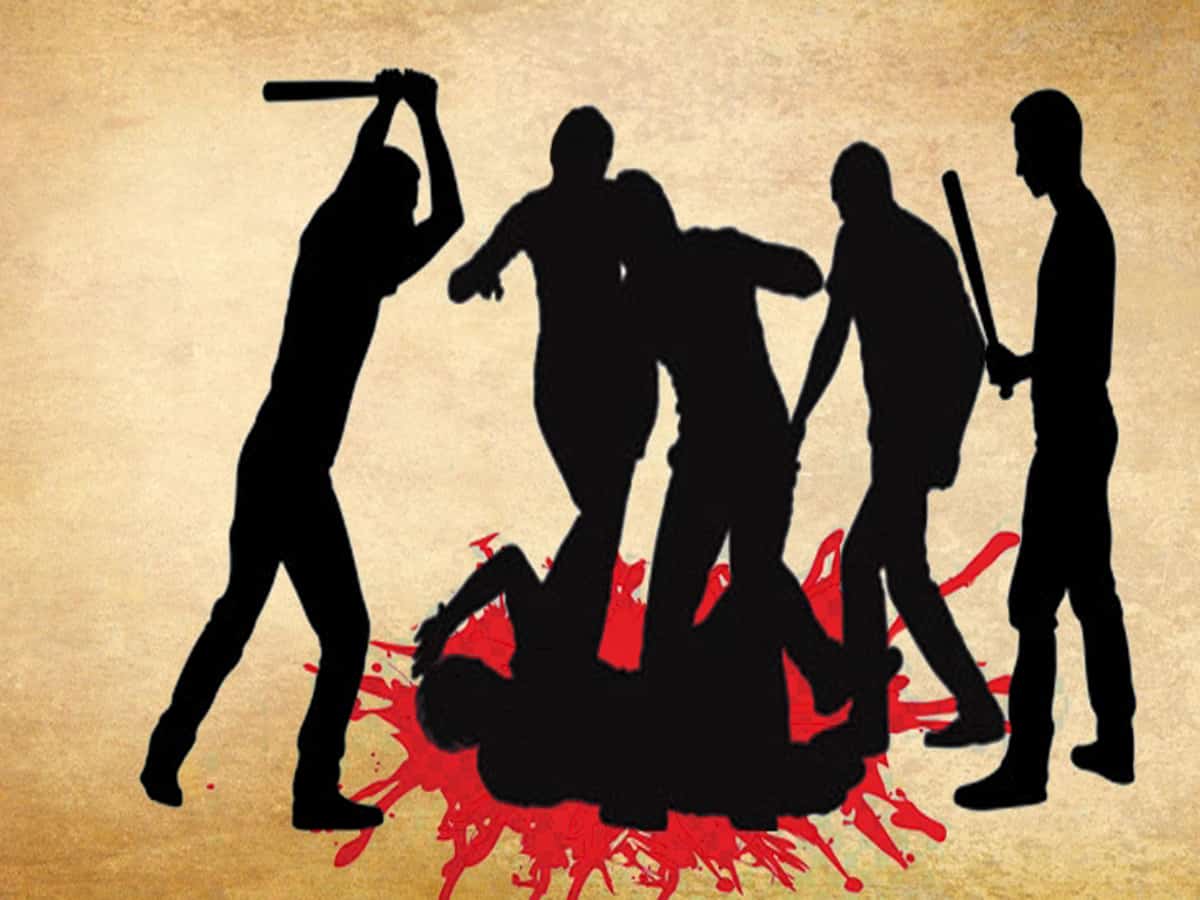
Ranchi: Jharkhand, which is known for rich mineral deposits, has also earned a bad reputation as an increasing number of crimes, including murder, rape, mob lynching, etc, are being reported from the state.
Around 2014, when the term of ‘mob lynching’ started to be used for such incidents, opposition parties had described Jharkhand as “lynching-khand”.
The statistics of the frequent incidents of mob violence in the state corroborate this. During the Assembly’s Budget session this year, the Jharkhand government, in response to a question by CPI-ML MLA Vinod Singh, had said that between 2016 and 2021, there were 46 incidents of mob lynching in the state.
In 2022, about a dozen incidents of mob violence have come to the fore.
On the night of October 6, dozens of people thrashed 45-year-old Imran Ansari in Dhawaiya village under the Gomia block of Bokaro district. The villagers alleged that this man had illicit relations with a woman of another religion in the village.
The incident led to communal tension in the village and surrounding areas. To control the situation, more than 300 policemen were deployed and prohibitory orders had to be implemented. A total of 11 people were arrested.
On October 3, 22-year-old Ejaz Khan was beaten to death by a mob in the Dumartoli village in Gumla district located on the Jharkhand-Chhattisgarh border, over accusations of stealing a goat in Chhattisgarh.
On the night of September 25, a mob assaulted four people, including three women of a family, accusing them of witchcraft, in Aswari village under Saraiyahat block of Dumka district. The mob also forced them to drink excreta and urine and branded them with hot iron rods.
On the night of September 4, a mob of hundreds killed three women, calling them witches, in Ranadih village of Sonahatu police station area, 50 km from Ranchi. The son of one of the women was also among the mob. When the police reached the village the next day, they had to face opposition from the villagers during the search operation.
In February this year, 17-year-old Rupesh Pandey was beaten to death by a mob during the Saraswati Puja immersion procession in Barhi, Hazaribagh. The matter was also raised in Parliament.
In the first week of January, a mob thrashed tribal youth Sanju Pradhan on the charge of stealing wood and then later burnt him alive, in Besrajara Bazar under the Kolebira police station area of Simdega. More than a dozen people were arrested in this case.
In May, 45-year-old Shamim Ansari was thrashed to death by a mob in the Bharano police station area of Gumla district just because he had protested against cutting a tree.
The Jharkhand government had also passed the Anti-Mob Lynching Bill in the assembly in December last year to curb the incidents of mob lynching, but in March this year, the Governor returned the bill with some objections.
In this bill, life imprisonment and fines ranging from Rs 5 lakh to Rs 25 lakh have been proposed in case of death in mob lynching. The cost of treatment of the victim of lynching will be given from the number of fines.
In case of mob violence, the accused shall be punished with imprisonment for a term which may extend to one to three years, or with a fine which may extend to Rs 1 lakh to 3 lakh for minor injury, and in case of grievous hurt, one to 10 years jail, or Rs 3 lakh to Rs 10 lakh fine.
The bill defines attacks by two or more people as mob lynching. Governor Ramesh Bais had returned the bill, objecting to this point, and seeking a redefinition of the crowd.
State Parliamentary Affairs Minister, Alamgir Alam, said: “By removing the points to which the Raj Bhavan has objections, the government will pass this bill again in the next session and give it the form of law.”
He had told the House that the government is contemplating setting up a fast-track court for speedy disposal of mob lynching cases.
S Ali has filed a public interest litigation in the Jharkhand High Court regarding the incidents of mob lynching in the state. According to the data he had collected on mob lynching in the state, from March 17, 2016, to March 13, 2021, 42 people were lynched, of which 23 died and 19 were seriously injured.
According to Ali, in 2017, Tehseen Poonawalla approached the Supreme Court regarding the incidents of mob lynching across the country. Jharkhand also made a party in that case.
In the same year, Ranjit Oraon also filed a PIL in the High Court on similar incidents. The court said that since the matter is going on in the Supreme Court, the direction that will come from there will have to be implemented in the state.
Advocate Yogendra Yadav says that the trend of mob violence in the state is very dangerous, and reasons like superstitions, love affairs, caste and religious hatred, and enmity are the main reasons.
Along with taking steps like setting up a special cell for probes, and fast-track courts, it is necessary that a massive public awareness campaign should be launched to check this trend, he said.



